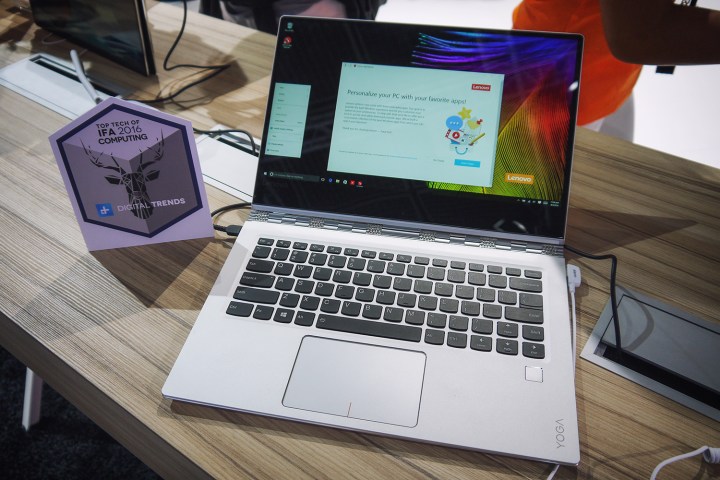
FIDO authentication is the product of the FIDO Alliance, which happens to include Lenovo, Intel, and Synaptics. This alliance was formed in July 2012 with the mission to create a standard that reduces the need to insert a password when authenticating a customer. FIDO aims to be open, scalable, and interoperable.
This alliance includes a large number of companies serving on its board including American Express, Bank of America, Google, MasterCard, Microsoft, PayPal, Qualcomm, Samsung, Visa, and more. The alliance also has many companies tied up on a sponsor level such as AMD, Chase, Dell, eBay, Fujitsu, Huawei, Intuit, LG Electronics, Mozilla, Netflix, and numerous others. The FIDO Alliance is a non-profit organization.
In a separate announcement made by the alliance, the first example of the collaboration is Lenovo’s upcoming Yoga 910 laptop. Service providers like PayPal will be able to provide FIDO-based password-free authentication to owners of this laptop. Once these customers register with PayPal or another FIDO-compliant website, all that will be needed is a simple swipe of a finger across the laptop’s sensor. This solution provides a multi-factor authentication based on a combination of hardware and a fingerprint pattern.
Brett McDowell, Executive Director of the FIDO Alliance, recently stated the world is facing a password crisis in that users need to keep up with numerous multi-character passwords across all of their services. And while two-step authentication helps to protect these services, it is a big hassle and will eventually fail as hacker methods evolve. Fingerprint authentication eliminates the need for passwords and the collaboration with Lenovo is a step in the right direction.
“FIDO authentication is already well established across the mobile ecosystem — there are now more than a billion Android and iOS devices in the market that service providers can use to deploy FIDO-enabled experiences to their customers,” McDowell said. “We’re seeing this grow every day. But the password problem is not limited to mobile devices; every single internet-connected device needs to have the ability to upgrade to simpler, stronger FIDO authentication.”
The Synaptics Natural ID fingerprint scanner used in the Lenovo laptops will feature enterprise-level security. It is backed by the company’s SentryPoint security suite that is capable of converting the biometric data into a proprietary template format so that hackers cannot recreate or reverse-engineer the data. This data is encrypted and digitally signed using 256-bit Advanced Encryption Standard (AES) and Transport Layer Security (TLS) technologies.
Lenovo revealed the Yoga 910 at the end of August, an ultra-thin convertible laptop measuring just 14.3mm thick. Features include up to a seventh-generation Intel Core processor, up to a 4K screen resolution, up to 16GB of system memory, and more. Currently, you can order the model featuring Intel Core i7, 8GB RAM and 256GB SSD for $1429. For a bit more ($1799), you can get the Yoga 910 with Core i7, 16GB RAM and 1TB SSD. Both are available at Lenovo, or you can go here to check out Best Buy’s selection.
Article originally published in September 2016. Updated on 10-12-2016 by Lulu Chang: Added news that the Yoga 910 laptop is now available for order in the U.S.


